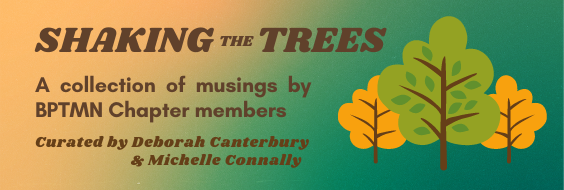What inspired you to become a Master Naturalist?
After multiple decades of encountering Master Naturalists as ‘birds of a feather’ during various public events (Scouting activities, conferences and fairs, municipal planning, etc.), it was my wife, Kathy Boys, who voluntold me that we were going to join the TMN cadre. It was one of the best decisions I never made.
On what type of projects do you typically spend your service hours, or are they varied?
For TMN, I’m usually ‘labor’ for restoration or maintenance projects; performing as a docent or trail guide; or teaching in a classroom/lab/field setting. However, my activities include ‘planning and organization’ at those points of intersection with my non-TMN volunteer roles, including as a leader in both Boy Scouts and Girl Scouts, as President of the North Texas Renewable Energy Group, and in various pop-up municipal or formal educational settings. Prior to retiring recently, these ‘points of intersection with conservation-minded nonprofits’ included roles that I performed for my Oncor, and previously Raytheon/TI, employers.
When you were taking the Master Naturalist classes, do you have a favorite lesson that has stuck with you?
Well, certainly one stands out as the ‘most pleasant surprise’. The second lesson was on ‘Laws & Ethics’, presented by retired deputy TP&W Director Mike Mitchell. At that point in the TMN candidate training, the fire hose of new information was becoming apparent, and I expected to find that week’s material to be dry and ‘of marginal personal merit’, perhaps being focused on formal parks management, or hunting/fishing programs … neither being anywhere near my core interests.
I could not have been more wrong. I would assert that little conservation/restoration progress could be made by TMN chapters (or individuals) without a firm understanding of Texas’ unique position as a dominantly (almost exclusively) expanse of privately owned, and vigorously legally protected, properties, as well as the constraints placed on State (e.g., Texas P&W) and Federal/county/municipal action on or across those properties. Well, even if you accept this premise, the thought of diving into this legal and ethical cauldron hardly seemed, in advance, appealing. How wrong could I be? Mike not only made the material engaging and meaningful, but he also demonstrated the passion, and sense of responsibility, with which TP&W personnel approach their careers, which they do not view as ‘just a job’, nor even just an excuse to be in the out-of-doors.
Can you tell us a bit about yourself, your background, and perhaps what you like to do in your spare time?
I grew up in upstate New York (think ‘Bonham, but with hills, running water, dense forests, and 4 seasons’), being dad’s ‘bird dog’ for anything that DIDN’T have feathers, since his dogs only left the property when on bird hunts. Running trap lines before school; joining him fishing (including running tip-up lines while ice fishing in blizzards) or hunting (including flushing prey); collecting wild roots, nuts, seeds, fruit, and fungi; etc.. Although he died when I was young (but not before teaching me to operate the tractor at nine, which cannot be done while seated!), and I did not fully embrace his hunting and fishing passions, I spent my entire childhood outdoors and mostly nose to the ground. I would disappear after school and most of the summer, showing up for dinner. I regret not finishing as an Eagle Scout (both of my kids, however, achieved Eagle and Gold), but found plenty of friends with similar passions. And, when I didn’t, there were always formal groups. For example, I petitioned to become the first (only?) junior member of the Rochester Mineralogical Society … rock collecting still being a main passion, which retirement will once again allow (soon, I’ve been promising myself!).
In college, I took as ‘electives’ many natural and environmental science courses, but went into cognitive and computer sciences, picking up 2 Bachelors’ and an M.S. (and almost 30 course hours since) while enjoying a 45 year career in mostly DOD and 3 letter agency R&D, after a handful of years in biomed research with the UT system. Although engineering seemed to come easy, I’ve found that I enjoy many of the ‘soft sciences’, and love working with kids. Across many venues, I’ve worked towards expanding kids’ and young adults’ interest in (and, ‘Duh!’, consequential commitment to actively protect) the world that is nature.
Is there one thing that you’d like to tell others who are thinking of becoming a Master Naturalist or perhaps current members who might need a little bit of inspiration?
Do you have a passion for enjoying nature (whether in general or as a niche), or perhaps environmental protection? It would be hard to imagine getting involved with a group of more diverse, yet like-minded, individuals as constitutes the Master Naturalists. As a corollary, it routinely amazes me how MUCH expertise exists across these individuals, most of whom are just waiting for an(other) opportunity to offer that passion, expertise, and sweat.







[…] Our Tribe’s Fortune 500 Hours – Randy Boys, Class of 2023 […]